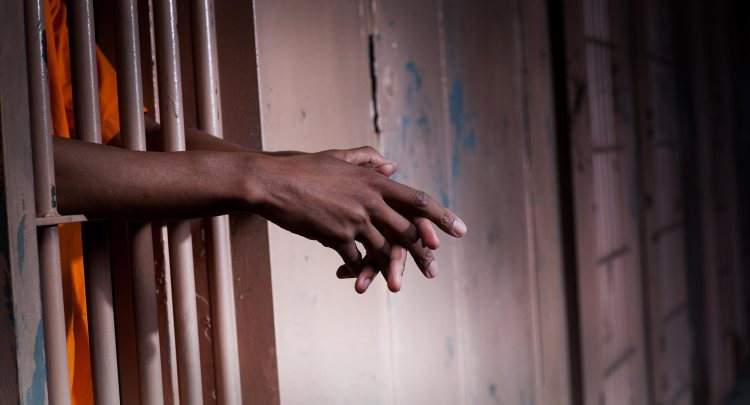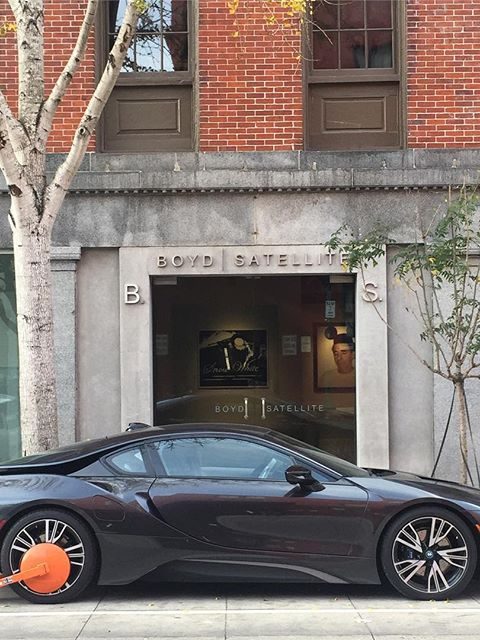Government Confiscation of Property Without Due Process More Like RICO than Traffic Matter
By Jeff Thomas
At the same time that the state is looking for ways to address our mass incarceration crisis, Mitch Landrieu’s administration is implementing policies that could make it worse. The Landrieu administration’s use of fines generated by the sudden plethora of traffic camera locations, makes every unaware driver potentially an unwilling volunteer in balancing the city’s budget. But like all regressive measures, poor and vulnerable people are more harshly impacted by this practice. More conniving, traffic camera programs are significantly more incapacitating than just a fine or fee, and if allowed to continue unabated, this system of speed traps and fines will ruin lives and increase crime in the city. More like hidden landmines than public safety measures, these cameras are a reversal of current best practices.
Across the country, states and cities are realizing that punitive measures, like regressive fines and escalating fees only increase crime in the long run. Even in the Deep South, conservative mainstays like Texas and Alabama have not only dramatically reduced their prison populations but slowed new incarcerations and are appreciating the resulting once in a lifetime drops in crime. Moreover, these practices save resources that can be redirected into education and jobs creation. In keeping with tradition and custom, Louisiana and New Orleans are last on this good list of reforms. For his part, Governor Edwards is currently pushing a plan to reduce prison populations. Yet the Landrieu administration, is attempting to balance the budget with income generated by punitive fees. This focus on revenue is more reminiscent of the government of Ferguson, MO that the DOJ said “erode legitimacy and community trust making the city less fair, less effective at promoting public safety and less safe.” Ever short sighted, the administration is seemingly unaware of the resulting budget outlays required if and when crime increases.
HOW TRAFFIC CAMERA FINES INCREASE CRIME
New Orleans’ tourism economy creates lots of low wage jobs. In fact New Orleans has the lowest wages of the top 50 cities in America. For people who work paycheck to paycheck, getting a boot on their only means of transportation is tantamount to a jail sentence for the owner as well as the car. Recently, the City Council eliminated bond for many nonviolent crimes, because even short prison stays increase crimes. If the fine is more than half the rent, then the car is often sacrificed.
The same reasons that people who are arrested for minor crimes should not be forced to pay bail, depriving poor people of transportation is as damaging as going to jail for a short period of time. If you can’t drive, then your ability to get to work is impacted. If you can’t get to work on time or regularly, then income reduction and even job loss is next. If you can’t pay rent, then the downward spiral begins. Escalating fines and soon to follow tow and impound fees make car retrieval virtually impossible. According to study conducted by Georgia Tech University, there is a direct link between unemployment and violent and nonviolent crime. A boot on a car can be the tipping point into the illegal income market to pay bills. So while other municipalities are seeing 30 -40 % reductions in crime, the Landrieu administration imperils us all with a not so creative way to implement a draconian policy that can increase crime.
At this point implementing new policies that will likely contribute to crime seems insane. Some might say that the Landrieu administration’s currently pouring millions into a policy that contributes to incarceration is proof. Especially as other parts of the criminal justice system are working to remove or drastically reduce fines. In fact, just last month, local judges held the Warrant Clinic which eliminated or reduced sometimes decades old outstanding traffic warrants. Often resulting from unpaid fees, people’s drivers’ licenses were suspended. These suspensions prevented people from getting better jobs. According to Judge Robert Jones, “This was about fighting crime and improving the quality of life of our citizens.” Yet having a car immobilized is far more devastating. Driving with a suspended license to an unwanted job might cause tan knuckles, but being unable to reliably get to a job creates loss of income and ultimately unemployment. For the guy who has child support payments, rent, lights and other kids to feed, losing the only means of transportation leaves few options to generate immediate income.
Having a budget reliant upon people breaking the law is a part of the old and broken incarceration paradigm. So especially distressing is the fact that a huge portion of the mayor’s latest “balanced budget” depends upon the successful implementation of the traffic camera program. The city intends to place hundreds of signs across the city mainly in school zones, which provide the most profitable tickets, to comply with state law so that the new mobile traffic cameras can move around town and ticket speeders. 30% of these camera tickets are paid quickly by those who can afford the $250 fine they get in the mail. But for many too many New Orleanians, a $250 ticket is a week’s pay and an impossible budget allocation that must be ignored. Dogged by a constantly escalating fine, the recipient might actually get another impossible to pay ticket as the city now has over a hundred traffic camera locations. 
Remember that $40 million the city invested in crime prevention after the tragic shooting on Bourbon Street after the Bayou Classic? Mixed in that allocation was $11 million investment in the traffic camera program. This new cash infix will fund the city contractor’s expansion of the program. The city will now have four more vans armed with license plate recognition cameras roaming the city. Each van has two employees, a satellite connected laptop, and an endless supply of immobilization boots. The city is paid a 33% commission on all monies received by the parking enforcement program. Poor people’s lives are often a balancing act. If one card falls, the whole contrivance is strained. This new aggressive neighborhood stressor actually creates a new class of “criminal behavior.” So even though the budget might be balanced, the costs to society and our families is known. Expect crime to get worse because we boot cars in New Orleans. Our men and families have borne the brunt of the incarceration onslaught since the eighties. Our state legislators should put a stop to this foolishness.

Wonderful blog! Do you have any hints for aspiring writers? I’m hoping to start my own site soon but I’m a little lost on everything. Would you advise starting with a free platform like WordPress or go for a paid option? There are so many choices out there that I’m totally overwhelmed .. Any ideas? Thanks!
Hi my friend! I wish to say that this article is awesome, well written and include almost all vital info. I signed up to get the newsletter. Thanks for your work.
[…] To read why boots create crime, read this article. […]